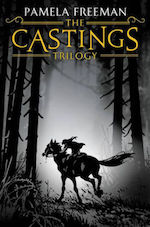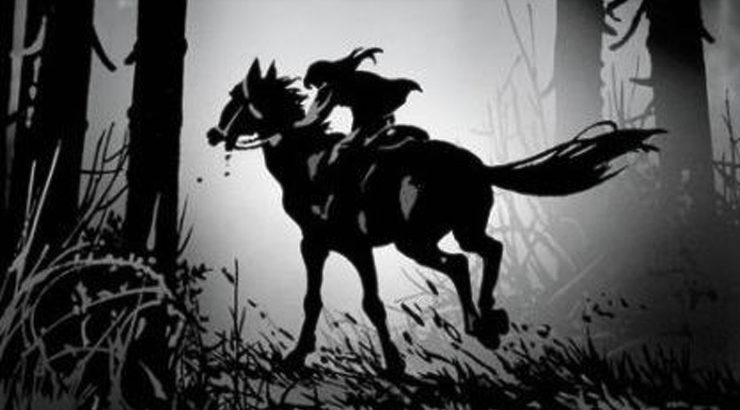You’ve read 1001 fantasy trilogies.
By the end of the Prologue, you’ve got a handle on the world, and by the time you hit that hook at the end of Chapter 1, you’ve got the protagonist pinned like a collected butterfly, too.
So far, in this book, your latest purchase, you’re travelling comfortably along the road of three-act structure, trotting happily at the heels of the young female star. Bramble is a member of an oppressed race. She has a special bond with horses. A warlord is after her, and the world has a fascinating take on fortune-telling, death and ghosts that would be worth exploring all on its own. How’s Bramble going to outwit the man? Your hands flutter over the crisp page; you love the sound of it turning.
(Or you swipe, and you love the graphic of it turning).
Unexpectedly, when you reach the next chapter, the point of view of the chosen one has vanished like voices on the wind. Suddenly you’re seeing through the eyes of an old man last mentioned in passing doing nothing of significance, thatching a village hut as a bit of background scenery.
The author, you recall, has written award-winning books for children. Her enticing voice sucks you in despite yourself. You discover that the thatcher’s story is every bit as fascinating as the protagonist’s. Fair enough. You’re used to more than one point of view. But then you never hear from him again.
Over the course of the first instalment of the trilogy, you become minor characters and major ones. Honest folk and liars. The compassionate and the cold-hearted. Bramble pops up often enough to keep continuity, but you’re utterly compelled by this kaleidoscopic view of the Eleven Domains that somehow never gets confusing or disorienting.
Why aren’t all books written like this? you wonder. Are authors allowed to do this?
* * *
“Then felt I like some watcher of the skies/ When a new planet swims into his ken;”—John Keats, On First Looking Into Chapman’s Homer
When I was introduced to romantic poetry in high school, my English teacher read Chapman’s Homer aloud and asked the class whether we thought the travels round the “realms of gold” and “western islands” were literal travels or metaphorical.
“Literal!” I shouted out.
(I’d returned from my first overseas holiday, and could imagine Keats getting yelled at by his parents for poking a finger in the phosphate-, lead- and poo-filled Nile).
Well. That was literally the first time I’d been wrong in English class—ouch!—and so the poem stayed with me. Those two lines resurfaced while I was reading the Castings Trilogy, because the author, Pamela Freeman, instead of ruthlessly culling the elements extraneous to the smooth sailing of the story, had poured molten gold into the subterranean ants’ nest of this amazing, emotionally powerful piece of art, allowed it to cool, and then unearthed and polished it for everyone to admire.
Loose threads. Hopping into heads. Hating a character for their vile actions and loving them a chapter later. Nothing was black and white and nothing was mundane. I stayed up all night reading. Laughing. Crying. Philosophically pondering.
I’d never encountered anything like it before.
* * *
You phone your best friend. You make her read the book. At some point your friend buys the next two books in the series and posts them to you, because this is a thing that you do, when one of you has money and the other one doesn’t; the pendulum always swings; it all evens out in the end.
At your insistence, your mum reads the trilogy, but she doesn’t like ambiguity in her fantasy, and they’re not her favourite books ever. You come to terms with this. It’s OK.
 (What is wrong with her? It’s not OK. They are incredible!)
(What is wrong with her? It’s not OK. They are incredible!)
You buy the author’s children’s books for your child, and your child loves them, and sneaks them to school. They get graffitied, ripped and stolen, that happy fate of all beloved children’s books.
One day, you hope, Freeman will write more adult books in this style and genre. She has gone restlessly adventuring into YA, non-fiction, picture books and historical fiction, and you can’t be sure she’ll ever return to adult fantasy, much less to the all-angled, piercing, Picasso-esque style, but you hold a torch for that version of her writer-self.
Is she Bramble? Will you hear from her again? Or is she the thatcher, tantalising you with just enough of his perspective to bring you to terms with some bold truth?
* * *
Pamela Freeman is an Australian author of books for adults and children. She has published fantasy, mystery, science fiction, family dramas and non-fiction. Her first adult fantasy series, the Castings Trilogy (Blood Ties, Deep Water, and Full Circle) is published globally by Orbit books. Beloved by Australian school children for the award-winning junior novels Victor’s Quest & Victor’s Challenge, as well as the Princess Betony books, her work also reaches a mainstream adult audience via The Soldier’s Wife and The War Bride (published under the name Pamela Hart and set in WWI Sydney) and The Black Dress: Mary MacKillop’s Early Years, which won the NSW Premier’s History Prize in 2006.
 Thoraiya Dyer is an award-winning, Sydney-based SFF writer and lapsed veterinarian. Her work has appeared in Clarkesworld, Apex, Cosmos, Analog and pretty much all the Fablecroft anthologies. Four of her original stories are collected in the petite yet beautiful, Asymmetry, available from Twelfth Planet Press. Her first novel, Crossroads of Canopy, a big fat fantasy set in a magical rainforest, is forthcoming from Tor in January 2017. She is @ThoraiyaDyer on Twitter.
Thoraiya Dyer is an award-winning, Sydney-based SFF writer and lapsed veterinarian. Her work has appeared in Clarkesworld, Apex, Cosmos, Analog and pretty much all the Fablecroft anthologies. Four of her original stories are collected in the petite yet beautiful, Asymmetry, available from Twelfth Planet Press. Her first novel, Crossroads of Canopy, a big fat fantasy set in a magical rainforest, is forthcoming from Tor in January 2017. She is @ThoraiyaDyer on Twitter.










